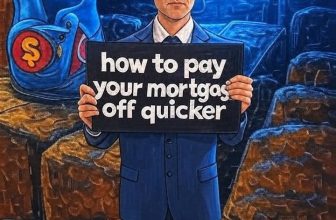(December 12, 2021)
Intro (pre-amble): up to 13:10 mark of podcast (Mortgages for the self employed | Let the recovery begin | Oil royalties are Up | Prime Rate stays same)
More write-offs equals tougher mortgage qualification
Did you know? Approximately 15% of Canadians are self-employed, making this an important segment in the mortgage and financing space. When it comes to self-employed individuals seeking a mortgage, there are some key things to note as this process can differ from the standard mortgage.
For self-employed individuals with an established business seeking best rate financing, the business must have a minimum two years of history. This includes self-employed applicants who own a full or part-time business in the form of sole proprietorships, incorporations, and partnerships.
In order to obtain a mortgage when self-employed, most lenders require your most recent 2 years of Personal Income Tax documents; Notice of Assessments and T1 Generals. Typically, individuals who can provide these documents – with acceptable income levels – should have little issue obtaining a mortgage product and rates equivalent to non self-employed applicants.
One primary benefit of being self-employed is the privilege of writing your income down. You enjoy less tax because you get to write-off expenses, but you (essentially) lose borrowing power. It is important to be aware of this because you can either pay less tax or have more borrowing power.
As a self-employed individual, you will fall into one of the following three categories:
- You can provide 2 years worth of personal income tax documents and will qualify based on the two year average of your declared income (as disclosed on Line 150 of your Notice of Assessment). Your minimum down payment is 5% and you will receive the same insurer premiums and interest rates as non self employed applicants.
- You can provide 2 years worth of personal income tax documents, but your declared income (Line 150 of your Notice of Assessment) is very low due to all the write-offs you declared. In this case, your application is further analyzed as the qualification criteria become more challenging. At this stage, Business Financial Statements or business related schedules from your T1 Generals will be examined to determine reasonability and validation pertaining to your qualifying income. Your minimum down payment increases to 10% and your insurance premiums increase, but your interest rate offerings remain competitive and uncompromised (when compared with non self-employed applicants).
- You are unable to provide 2 years worth of personal income tax documents and are therefore required to increase your down payment to 20% (or possibly higher). Not only does your down payment increase, but so does your interest rate.
Here’s a list of the standard document requests from lenders for self employed applicants. You can expect to submit (at least) two or sometimes all of the following:
- For incorporated businesses – two years of accountant prepared financial statements (Income Statement and Balance Sheet)
- Two most recent years of Personal NOAs (Notice of Assessments)
- Two most recent years of T1 Generals (with all referenced schedules)
- Potentially 6-12 months of business bank statements
- Statement of Account to verify that there are no taxes in arrears
Contact Marko, he’s a Mortgage Broker!
604-800-9593 direct Vancouver (Click Here to schedule a call with Marko!)
403-606-3751 direct Calgary (Click Here to schedule a call with Marko!)
@markogelo (Twitter)
MarkoMusic (SoundCloud Account)…all podcast music tracks are performed and produced by Marko





